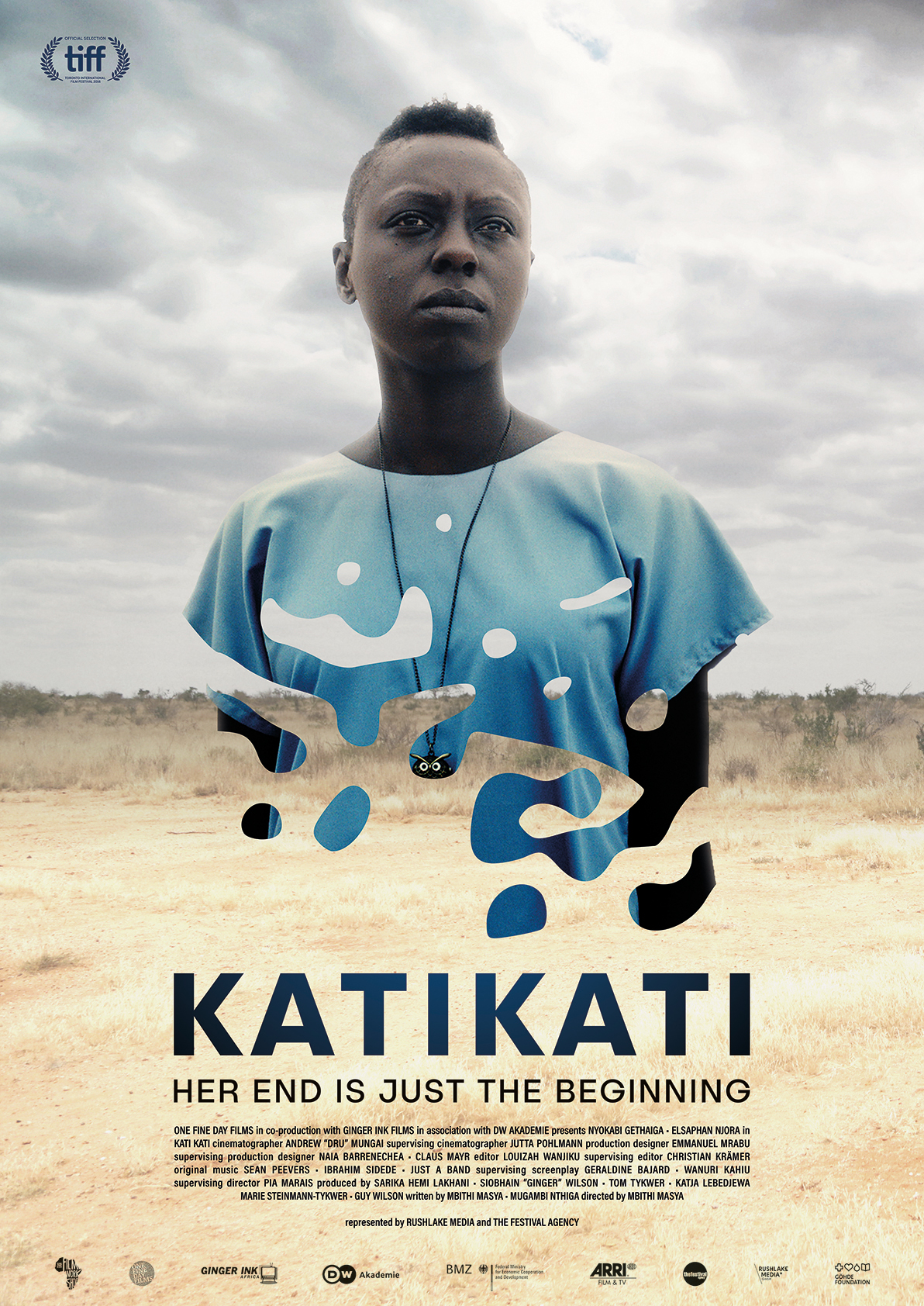
Kati Kati
The blurb for Kati Kati runs “A young woman with no memory of her life or death, is helped with assimilation to the afterlife by a ghost.” So far, so weird. This Kenyan film, written by Mbithi Masya and Mugambi Nthiga, and directed by Masya, delivers on this promise of weirdness in a wonderfully compelling and understated way. I was lucky enough to catch it when it was screened as part of the Kizobazoba! film and lecture series that took place at the Humboldt Forum in March, in which several cinema initiatives from the African continent presented films and talks on the present and future of the cinematic medium on the continent.
The film is set at an isolated lodge in a beautiful semi-arid landscape, which makes for stunning wide shots of the horizon and sky. Kaleche comes to herself in this place with no recollection of who she is or how she came to be here. Stumbling into the lodge to find the people who already inhabit it, she is told that she is there because she is dead. The apparent leader of the group is a man called Thoma, who acts as something of a guide to her as she tries to come to terms with the situation – but he remains mysterious and, it seems, deliberately reluctant to answer her increasingly urgent questions. The storyline follows a few subplots – the young almost-graduate Mikey, and the taciturn preacher King, for instance. But Kaleche (played by Nyokabi Gethaiga) and Thoma (played by Elsaphan Njora), each in their own right and in their relationship, form the core of the film. And they do so with excellent performances – especially Njora stuck out for me for his portrayal of the charismatic and strangely tragic Thoma.
It has a limited cast, is set in a limited space (all the action takes place at the lodge) and it seems likely the film was made with limited means – but budgetary obstacles are overcome cleverly, so that it never feels like a ‘low-budget’ film. The sound design was also very well executed, managing to communicate both lightness and dread in turn. Most of all though, I enjoyed the tone the film managed to strike: offering at times the type of scare you might expect from a zombie movie, the tragic notes of a story about death as well as some genuinely funny moments. To me, the film seemed exemplary of the fact that there is some exciting cinema being produced on the African continent, and it’s worth keeping an eye out for it.
